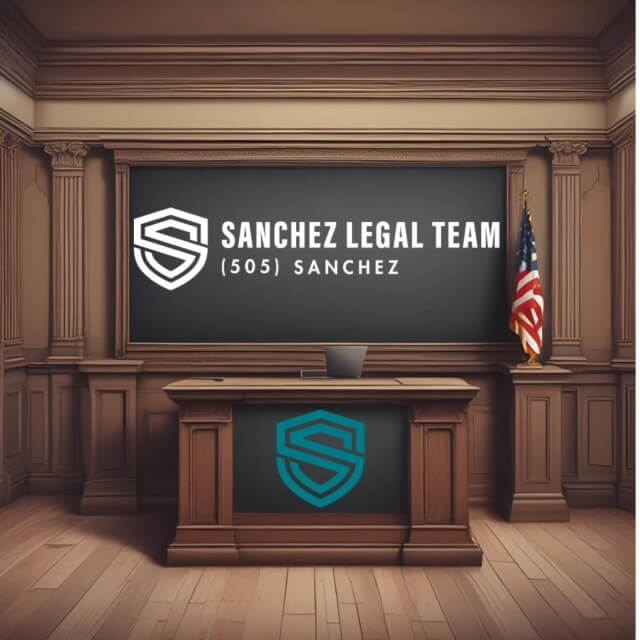
Are you facing a divorce in New Mexico but want to avoid the stress and expenses of going to court? Look no further, because this ultimate guide is here to help you navigate the process of mediating your divorce without setting foot in a courtroom. With careful planning and the right approach, you can achieve a peaceful resolution that is fair for both parties involved.
In this comprehensive guide, Sanchez Legal Team walks you through the steps involved in mediating your divorce in New Mexico. These steps include finding a qualified mediator, while also achieving a better understanding of the overall mediation process.
The advantages of mediation include increased control over the outcome and reduced conflict.
Are you concerned about the impact on your children or looking to protect your financial interests? If so, this guide helps readers better understand the mediation process and successfully mediating a divorce in Albuquerque, New Mexico.
There are many benefits to mediation. By taking the collaborative route, you can lay the groundwork for a more positive future and start the healing process sooner.
UNDERSTANDING MEDIATION WITH NEW MEXICO DIVORCE CASES
Mediation is a process that allows couples to negotiate the terms of their divorce with the assistance of a neutral third party, known as a mediator. Often, the term “mediation” is used interchangeably with settlement facilitation. For practical purposes, divorce mediation is the same process as a divorce settlement facilitation.
Divorce mediation is beneficial for those who wish to maintain control over the outcome of their divorce. You see, when mediation fails, the assigned judge decides the couple’s future – for better or worse. At times, both sides leave a divorce trial feeling as though the court “split the baby.” Consequently, both sides may leave a divorce trial unhappy with the result.
Mediation is rooted in communication and collaboration, emphasizing a resolution that works for both parties. In New Mexico, the mediation process is structured to facilitate understanding and compromise. In doing so, mediation enables the couple to navigate the often-turbulent waters of divorce more smoothly.
One of the key components of mediation is that it is mandatory. You see, New Mexico family courts will only set a divorce trial after mediation is completed. In other words, mediation is the first necessary step on the road to a divorce trial.
Divorce mediation is mandatory because most divorce cases can and should be resolved outside of court.
In addition to being mandatory, mediation in divorce cases is typically confidential. This means that anything discussed during the mediation sessions cannot be used in court if the mediation does not result in an agreement. This confidentiality helps create a safe space for honest communication. In turn, this communication helps the spouses to potentially avoid an expensive and stressful litigation process.
ADVANTAGES OF MEDIATING YOUR DIVORCE IN ALBUQUERQUE, NEW MEXICO
Mediation offers numerous advantages over traditional litigation, making it an attractive option for many couples. One of the most significant benefits is the ability to maintain control over the outcome. In a courtroom setting, a judge makes the final decisions regarding the divorce. In turn, this decision may not align with either, or both, of the party’s wishes.
So, mediation empowers couples to craft their own agreements. In doing so, mediation ensures that the resolutions reflect their couples’ unique needs and circumstances. This collaborative approach often leads to more satisfactory outcomes for both parties.
Another major advantage of mediation is cost-effectiveness. Divorce litigation can be incredibly expensive. This expense includes attorney fees, court costs, and other related expenses. Mediation typically requires fewer resources, as it involves fewer formal proceedings, and less time spent in court.
By resolving disputes through mediation, couples can save a significant amount of money.
Additionally, mediation tends to be a quicker process compared to litigation. Court schedules can be congested, leading to prolonged timelines for divorce proceedings. In contrast, mediation sessions can be scheduled at the convenience of both parties. As such, a divorce can often be resolved through mediation in months – rather than potentially taking years.
This expedited process not only reduces stress but also facilitates a smoother transition into post-divorce life. In turn, the reduced time and stress can greatly improve one’s overall mental health and wellbeing.
At the end of the road, life is short. Often, both sides can be mutually benefited by resolving a divorce’s issues through mediation rather than trial.
Check out this video to better understand how to get a divorce in New Mexico without going to court.
OVERVIEW OF THE MEDIATION PROCESS IN NEW MEXICO
In New Mexico, the mediation process typically begins with a scheduled mediation between the couple and the mediator. Generally, both sides are in different rooms and do not interact during mediation.
At the outset, the mediator explains the mediation process and has both sides side a Confidentiality Agreement.
Ultimately, the mediator’s goal is to create a safe and respectful environment where both sides work towards a resolution.
Mediation involves contested divorces. In other words, mediation is necessary when both sides do not agree on necessary issues. During mediation, the mediator facilitates discussions on key topics such as child custody, property division, and spousal support. The mediator’s role is to guide the conversation, help identify common interests and encourage compromise. This structured approach allows couples to explore different solutions and work together to find mutually agreeable terms.
In most divorce cases, mediation results in agreement on the contested issues. If so, the mediator assists in drafting the necessary divorce papers that reflect the agreement. For instance, property and debt issues are contained in the Marital Settlement Agreement. Moreover, custody, timesharing and child support agreements are reflected in the necessary Parenting Plan.
The Martial Settlement Agreement and Parenting Plan outline the terms of the divorce and serve as a roadmap for both parties moving forward. These documents are then filed with the Final Decree that finalizes the divorce.
FINDING A QUALIFIED DIVORCE MEDIATOR IN NEW MEXICO
Finding the right mediator is a crucial step in the divorce mediation process. A qualified mediator usually has significant experience in family law. Also, a successful mediator can help two sides meet common ground on contested issues.
In New Mexico, successful divorce mediators are often retired family court judges. In Albuquerque, Judge Deborah Davis Walker and Judge Angela Jewell are retired family court judges that now work as mediators.
Additionally, successful divorce mediators are often retired family law attorneys with decades of trial experience. For example, Gregg Velasquez and Michelle Cortez are retired family lawyers that exclusively handle mediation.
When selecting a mediator, it is essential to consider their credentials and background. Look for a mediator who has a solid track record of successfully helping couples navigate divorce. Additionally, consider the mediator’s approach to mediation. Some mediators adopt a more facilitative style, while others may take a more evaluative approach. For example, some mediators openly offer opinions on the likely outcomes if the case were to go to court. So, understanding the mediator’s style can help you determine if they are a good fit for your situation.
PREPARING FOR MEDIATION: GATHERING NECESSARY DOCUMENTS AND INFORMATION
Preparation is key to a successful mediation process. Before attending mediation sessions, both parties should gather all necessary documents and information relevant to their divorce. This includes financial statements, tax returns, bank account information, and any other documentation related to assets, debts, and income.
In other words, both sides need to complete divorce discovery before participating in mediation. Having this information readily available will facilitate productive discussions and help both parties make informed decisions during mediation. Alternatively, valuable time during mediation can be wasted by both sides being unprepared. If so, considerable time may be wasted retrieving documents during the mediation process.
Check out this video to better understand the discovery process during a divorce in Albuquerque, New Mexico.
In addition to financial documents, it is essential to consider any issues related to children. These issues include custody arrangements, visitation schedules, and child support. Parents should come prepared to discuss their children’s needs and how they envision co-parenting after the divorce. It may be helpful to create a list of priorities and goals regarding parenting arrangements to ensure that both parties are on the same page. By being prepared with relevant information, couples can streamline the mediation process and enhance the likelihood of reaching a satisfactory agreement.
THE ROLE OF ATTORNEYS IN DIVORCE MEDIATION
While mediation is often seen as an alternative to traditional litigation, it does not eliminate the need for legal counsel. Attorneys play a vital role in the mediation process in Albuquerque, New Mexico. This role includes providing guidance and support to their clients.
Attorneys are generally present during mediation sessions. The attorney’s presence provides an additional layer of support. Most importantly, attorneys offer real-time advice and help clients understand the legal implications of the agreements being discussed.
Another important aspect of the attorney’s role in divorce mediation is reviewing the final settlement agreement. Once the couple has reached an agreement through mediation, it is wise for both parties to have their attorneys review the documents. This review ensures that the agreement complies with legal standards and protects each party’s rights. An attorney can provide valuable insights on potential long-term implications and help identify any areas that may require further negotiation.
In other words, attorneys help to spot key issues in the divorce papers that could lead to down-stream issues. Often, future issues can be resolved with the proper legal wording. So, it is essential to have an experienced New Mexico divorce lawyer review your divorce papers.
Are you looking for a top Albuquerque divorce lawyer in New Mexico? Look no further. Call (505) SANCHEZ and talk with one of Albuquerque’s best divorce lawyers.
RESOLVING COMMON ISSUES THROUGH MEDIATION: CHILD CUSTODY, PROPERTY DIVISION, AND SPOUSAL SUPPORT
A primary advantage of mediation is the ability to address common issues that arise during divorce. Common issues include child custody, property division, and spousal support. In cases involving children, mediation allows parents to collaboratively create a Parenting Plan that reflects their children’s best interests.
Regarding the necessary Parenting Plan, discussions may include custody arrangements and visitation schedules. Also, the parties can decide how decisions regarding education, health care, and extracurricular activities are made. By focusing on the children’s needs, parents can work together to establish a framework that supports healthy co-parenting post-divorce. In turn, enhanced co-parenting can help the couple to avoid future conflict and litigation.
When it comes to property division, mediation can facilitate open dialogue about marital assets and debts. Couples can discuss their individual and joint financial situations. In doing so, the couple can determine which assets need to be divided, and how to equitably distribute property.
A skilled divorce mediator can help clarify New Mexico law and policy surrounding property division. This collaborative approach allows couples to find solutions that may not be possible in a court setting. As a result, both sides can leave mediation with an agreement that is preferable to a judge’s decision.
Spousal support, or alimony, is another critical issue that mediation can effectively address. Couples can discuss their financial needs and obligations, considering factors such as income, standard of living, and the duration of the marriage. In doing so, the mediator can facilitate negotiations to determine an appropriate amount and duration for spousal support.
FINALIZING THE DIVORCE AGREEMENT THROUGH MEDIATION IN NEW MEXICO
Once the mediation sessions have concluded and both parties have reached an agreement, the next step is finalizing the divorce agreement. Often, the mediator drafts a written settlement document that outlines the terms agreed upon by both parties. This document serves as a formal record of the couple’s decisions regarding child custody, property division, spousal support, and any other issues that were addressed during the mediation process. It is essential that both parties carefully review this document to ensure that it accurately reflects their understanding and agreement.
Next, the agreement is recorded within the necessary divorce papers. In New Mexico, these divorce papers include the Martial Settlement Agreement that divides community property, debt, and spousal support.
Are children involved in the New Mexico divorce? If so, the issues regarding custody, timesharing, and child support are recorded in the Parenting Plan.
The Martial Settlement Agreement and Parenting Plan are then filed with the Final Decree. Once signed by a judge, this Final Decree legally ends the marriage.
Once both parties are satisfied with the final agreement and have received legal approval, the next step is to submit the settlement document to the court for approval. In New Mexico, the court will typically review the agreement to ensure that it is fair and in the best interests of any children involved. Once the court approves the agreement, it becomes legally binding, and the divorce is finalized. This process not only provides closure to the couple but also lays the groundwork for a more positive future as they transition into their new lives.
THE COST OF DIVORCE MEDIATION AND POTENTIAL SAVINGS COMPARED TO LITIGATION
Cost is an important consideration when navigating a divorce in New Mexico. In turn, mediation can offer significant savings compared to traditional litigation. While the exact costs of mediation can vary depending on the mediator’s fees and the complexity of the issues involved, it is generally far less expensive than going through the court system. Also, a divorce can be resolved through mediation far quicker than going through court.
You see, mediation involves fewer formal proceedings. This means less time spent in court and fewer associated legal fees. As a result, couples can save a considerable amount of money while still achieving a resolution that meets their needs.
In addition to lowering overall costs, mediation can also reduce other financial burdens associated with divorce. For instance, couples who mediate are often able to reach agreements more quickly than those who pursue litigation. So, divorce mediation can minimize the financial strain caused by extended legal battles.
Furthermore, mediation can help preserve relationships, particularly when children are involved. In turn, healthier relationships can lead to more amicable co-parenting arrangements and reduced future conflicts. These factors contribute to long-term savings and a more positive post-divorce experience.
At the end of the road, divorce mediation allows individuals to take control of their divorce process in New Mexico. This control enables both sides to move forward with confidence and clarity as they embark on their new journeys.
Are you looking for one of Albuquerque’s best uncontested divorce lawyers in New Mexico? Look no further. Call (505) SANCHEZ and talk with a top-rated Albuquerque family lawyer.
Our team of hard-hitting Albuquerque lawyers handle restraining order of protection, kinship guardianship, and child custody cases across New Mexico.
Call (505) SANCHEZ today.









